Bots in Horses
Signs of Bots in my Horse
Bot eggs on the hair of horses is the major sign your horse has bots. You may also see a little fly that looks similar to a honey bee flying around certain areas of your horses body especially knees, hocks, tail head, and throat latch.
On rare occasions, you may see the actual bot larvae in the stool of your horse especially after deworming with ivermectin or moxidectin. Fecal egg counts do not contain bot eggs as they are seen on the horses' hair.
These larva attach to the lining of the stomach and cause a very small ulcer. When there is a heavy infection these ulcers may join to form a large ulcer.
There are indications that if the ulcer is large enough it may cause colic.
Horsemen's Laboratory recommends deworming for bots in late fall or early winter.
What are Bots?
Bots (Gasterophilus) are the larvae of botflies. There are 2 species of Gasterophilus, G Intestinalis, and G nasialis. G. Intestanalis is the most common. It most commonly lays its very small yellow eggs on the inside hair of the knees on horses.
When the horse licks this area the eggs hatch and the larvae attach to the tongue and lips. Occasionally, they may lay their eggs on the neck and mane where other horses lick them while mutually grooming each other. G. Nasialis lay their eggs in the inter mandibular space.
They hatch in 10-14 days and migrate to the corners of the lips and enter the mouth. Both species spend 3- 4 weeks in the mouth causing irritation and even occasionally ulcers around the teeth, gums and tongue before moving on to the stomach. They live in the stomach until spring and then pass and burrow into the ground where they stay for approximately 3 weeks. Until they mature and come out of the ground as an adult bot fly.
Bots infect horses in many parts of the country. They have a very interesting life cycle with the adults resembling a honeybee. The larva in the stomach look similar to many free-living grubs.
For additional questions please call us directly at 800-544-0599 or email us at hlab@horsemenslab.com.
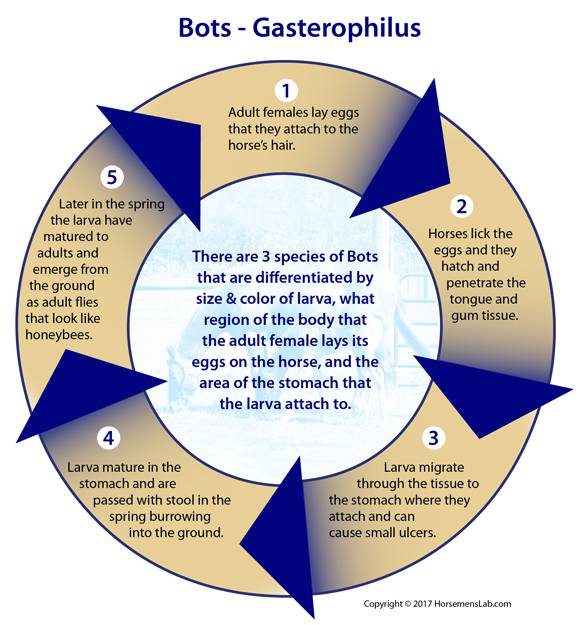
Specimen Photos/Illustrations
Please click on thumbnails to read more about Bots:



 Ulcer on Tongue
Ulcer on Tongue
 Larva in Stomach
Larva in Stomach
 lcer on Gums
lcer on Gums



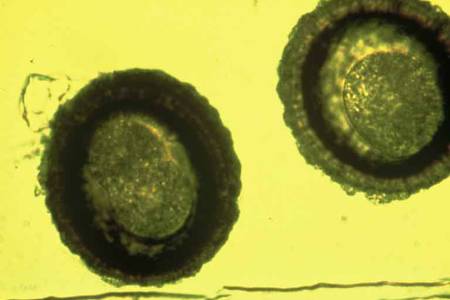 Roundworms
Roundworms
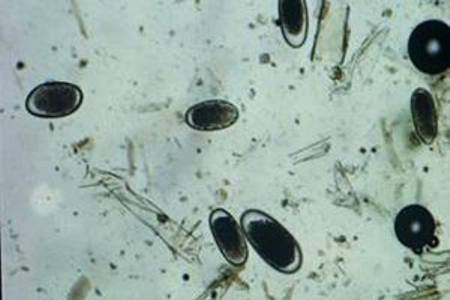 Strongyles
Strongyles
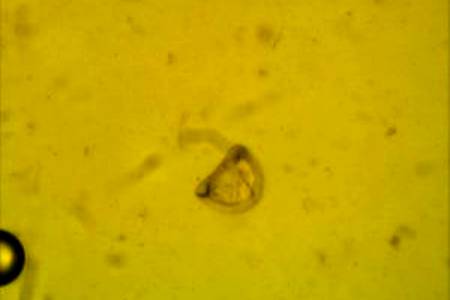 Tapeworms
Tapeworms
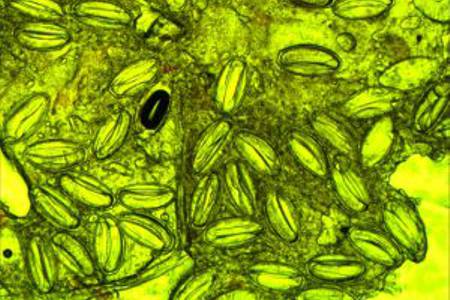 Pinworms
Pinworms